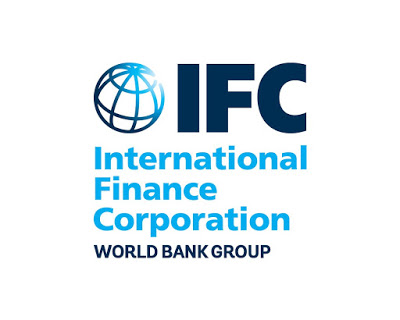Anthony Areh
The Development Committee of the International Monetary Fund (IMF) and the World Bank Group (WBG) has urged the International Finance Corporation (IFC) to strengthen global preparedness for future pandemics.
The committee said this on Friday in a communique issued at the end of its virtual meeting at the ongoing IMF/World Bank Spring meetings in Washington D.C.
The committee is a ministerial-level forum of the WBG and the IMF for intergovernmental consensus-building on development issues.
The IFC, a member of the WBG, is an international financial institution that offers investment, advisory and asset-management services to encourage private sector development in less developed countries.
According to the committee, the pandemic has triggered far-reaching consequences so progress must be made in building robust health systems with universal coverage.
It also said that developing countries need to strengthen their readiness for vaccination campaigns and develop coordinated strategies to reach vulnerable populations.
“We commend the WBG for supporting client countries’ procurement and deployment of vaccines and we encourage strong monitoring and accountability mechanisms to ensure fair and efficient distribution.
“We welcome WBG’s ongoing revision of the eligibility criteria for vaccine procurement and we call on IFC to redouble its efforts to support manufacturing capacity for vaccines and pandemic related medical supplies in developing countries.”
The committee said that a vibrant private sector would be essential for client countries to recover, create jobs and embrace economic transformation.
It, however, urged the WBG to continue its work to help crowd-in private capital and finance and to support the private sector.
This, it said should build on the IFC 3.0 strategy to create markets.
It added that the IFC should continue helping companies create jobs, preserve viable businesses, adapt to the changes brought by COVID-19 and pursue a green recovery.
According to the committee, fragility, conflict and violence (FCV) have worsened in many regions and it is urgent to address drivers of FCV and forced displacement and migration.
It added that a sustainable and inclusive recovery requires addressing financial sector vulnerabilities, eliminating tax evasion and mobilising vital investments.
“Priorities for investment include quality health care, nutrition and education, social safety nets, digital and other innovative technologies, sustainable and quality infrastructure, access to energy, including renewable resources.
“Others are broader opportunities for women and girls and finance for Small Medium Enterprises (SMEs) and microenterprises.
“We urge the WBG to help all client countries revitalise trade, support foreign direct investment, preserve and create jobs.”
On climate financing, the development committee asked the WBG to ramp up its comprehensive work on biodiversity and work on measuring co-benefits and mainstreaming biodiversity in its operations, as appropriate.
“We further encourage the WBG and IMF to support a measurable impact in the transition to a low-carbon economy, while considering countries’ energy needs and mix, and providing targeted support for the poorest.
“These efforts will include phasing out of inefficient energy subsidies and other distortive fiscal policies where feasible.
“We support the WBG’s ambitious new target to direct 35 per cent of its financing to climate on average, its commitment for at least 50 per cent of bank climate financing to support adaptation and resilience.”
It said it also supported WBG’s crucial convening and knowledge-sharing role and support to a just transition, for countries that request such support.
It added that it looked forward to the WBG’s Climate Change Action Plan for 2021-2025 and recognised its work on disaster risk management, preparedness and response.
The next meeting of the development committee is scheduled for Oct. 15, in Washington D.C, the communique said.




